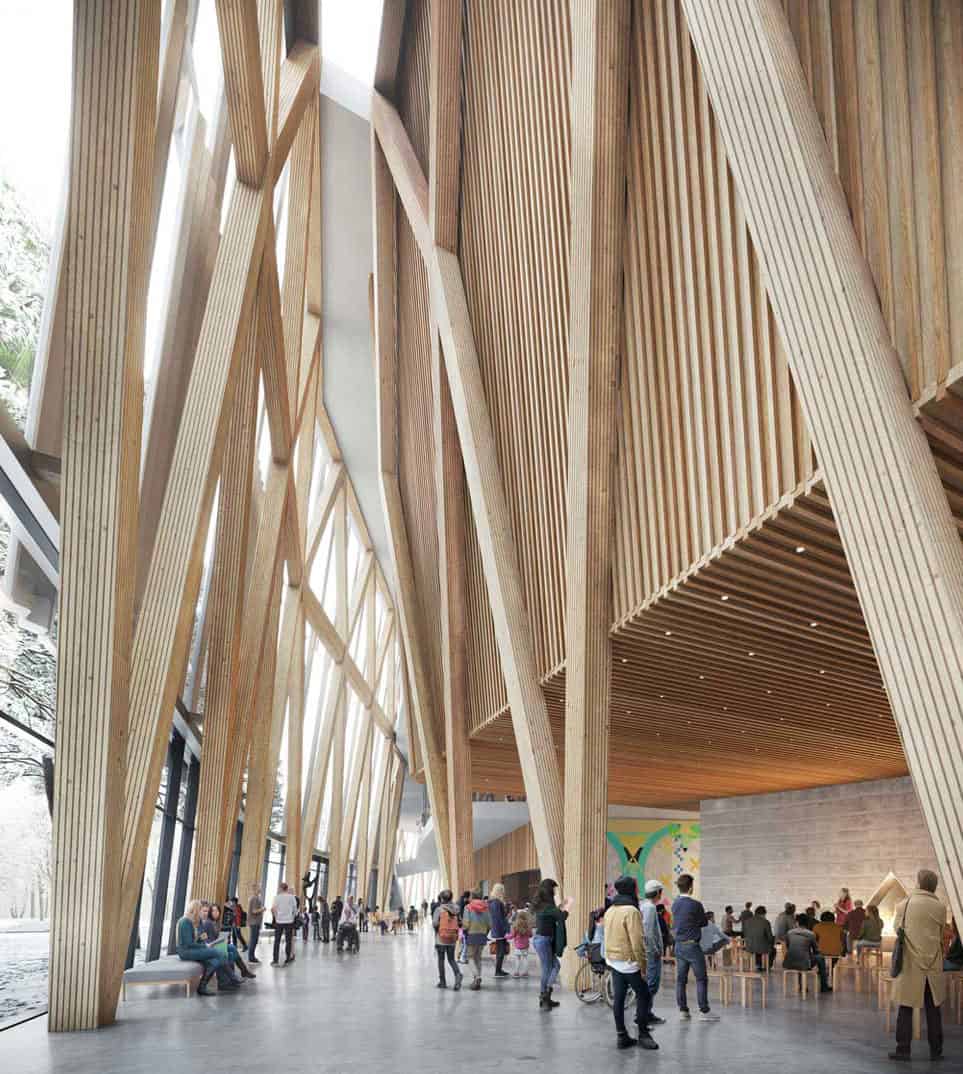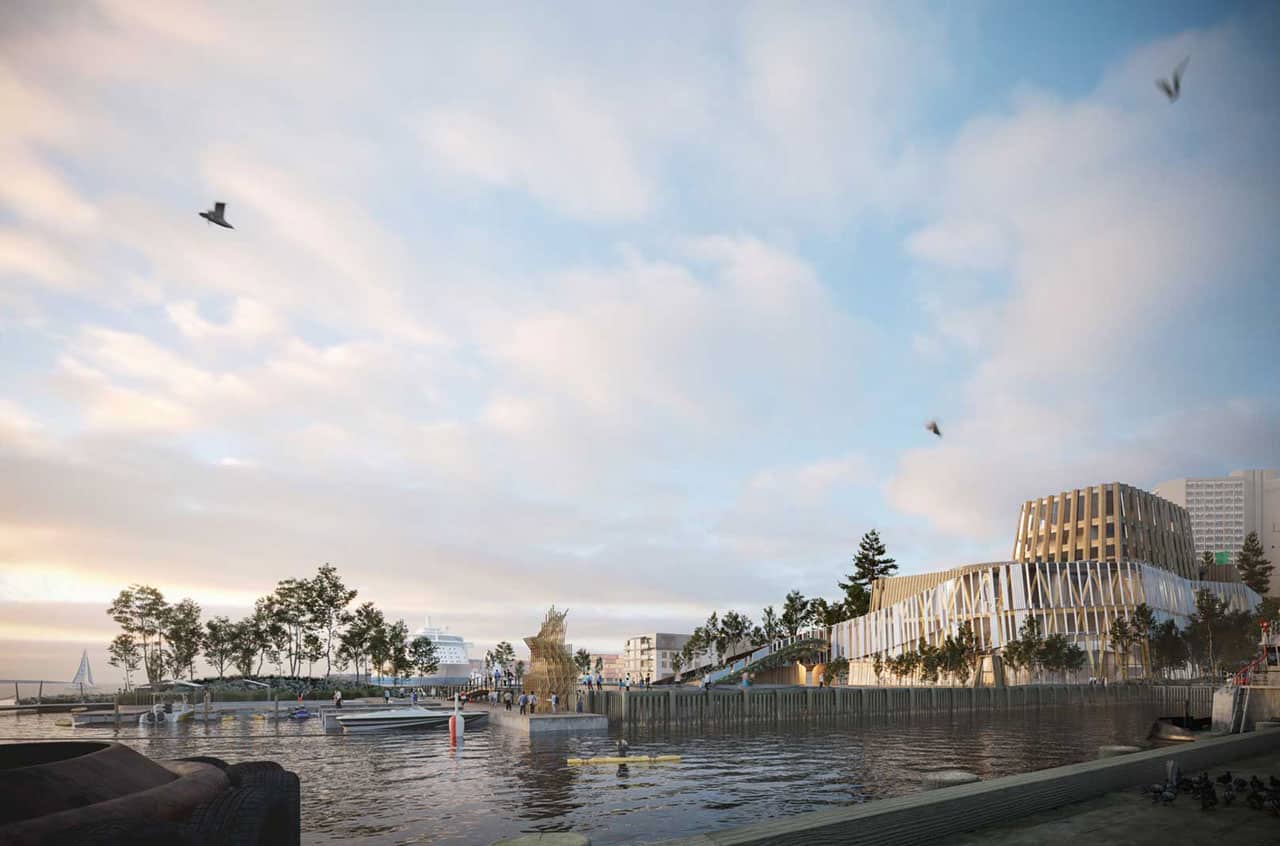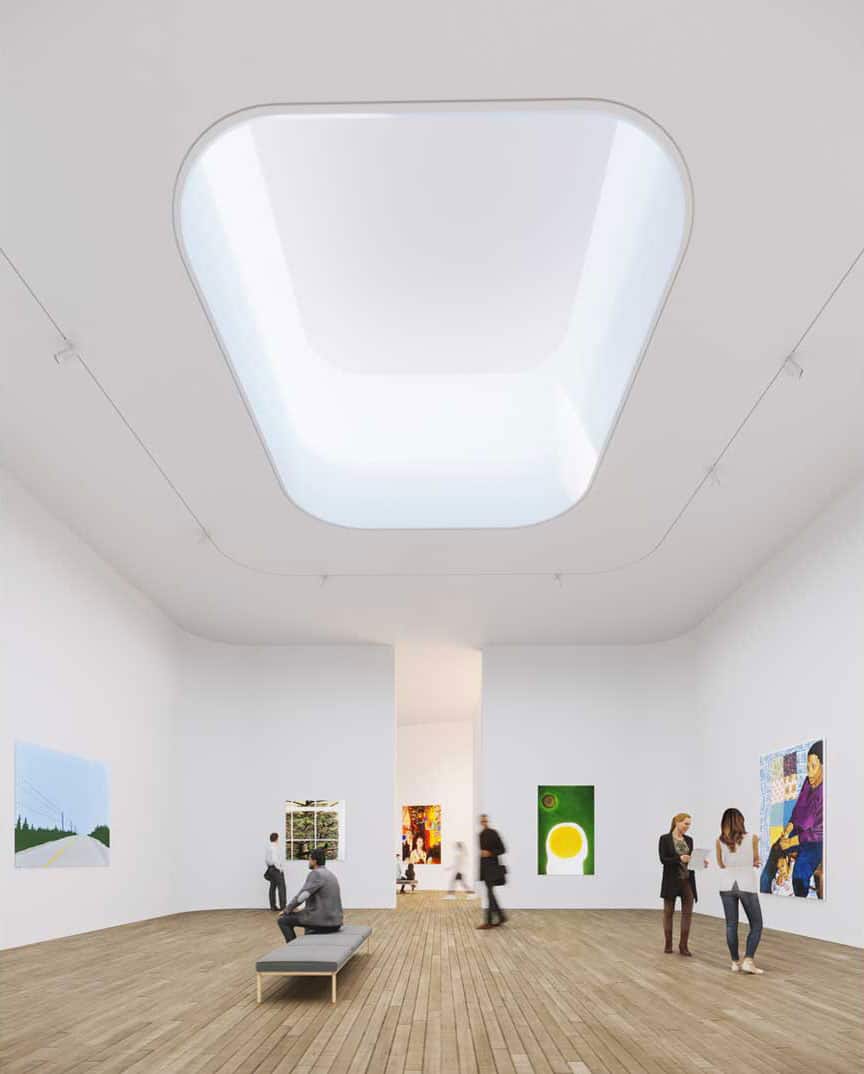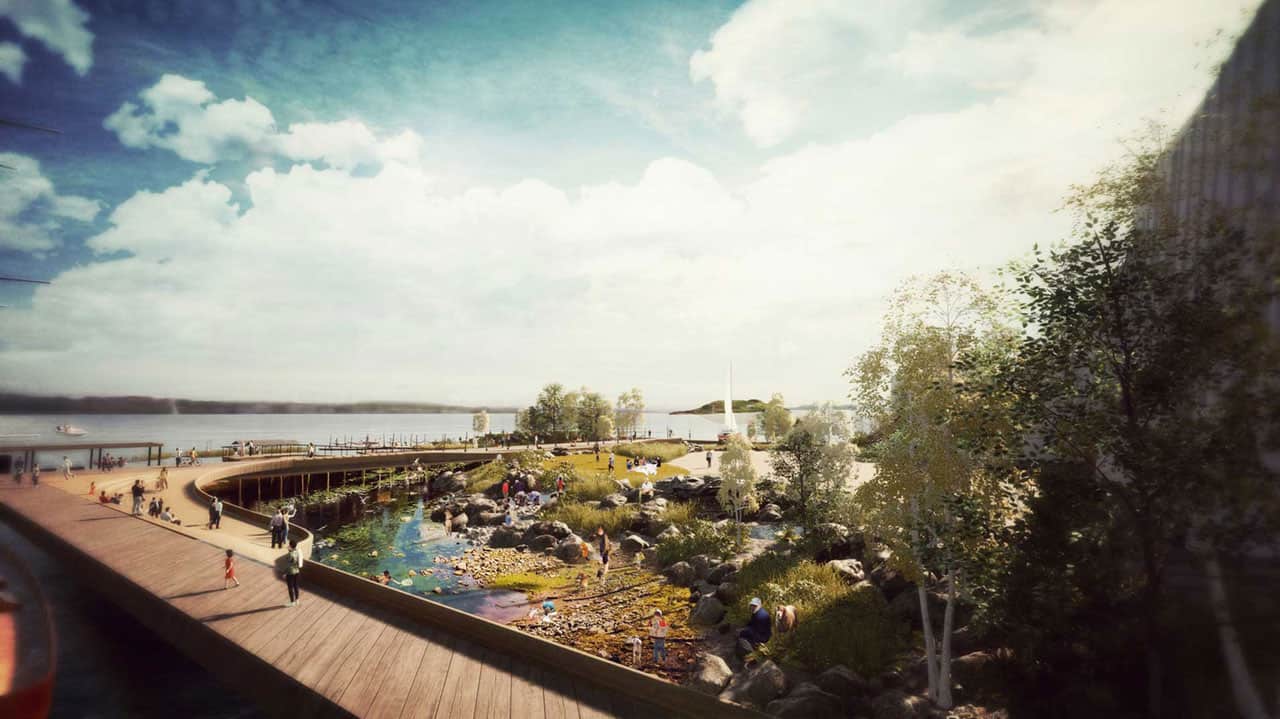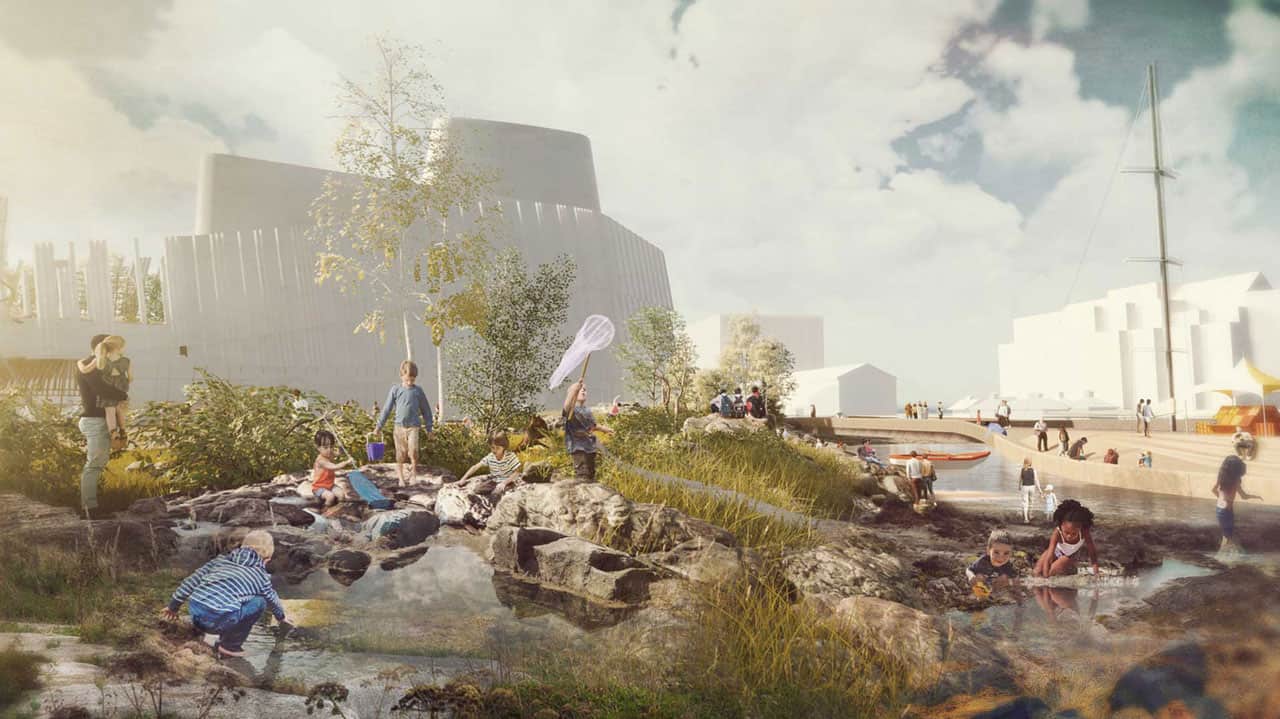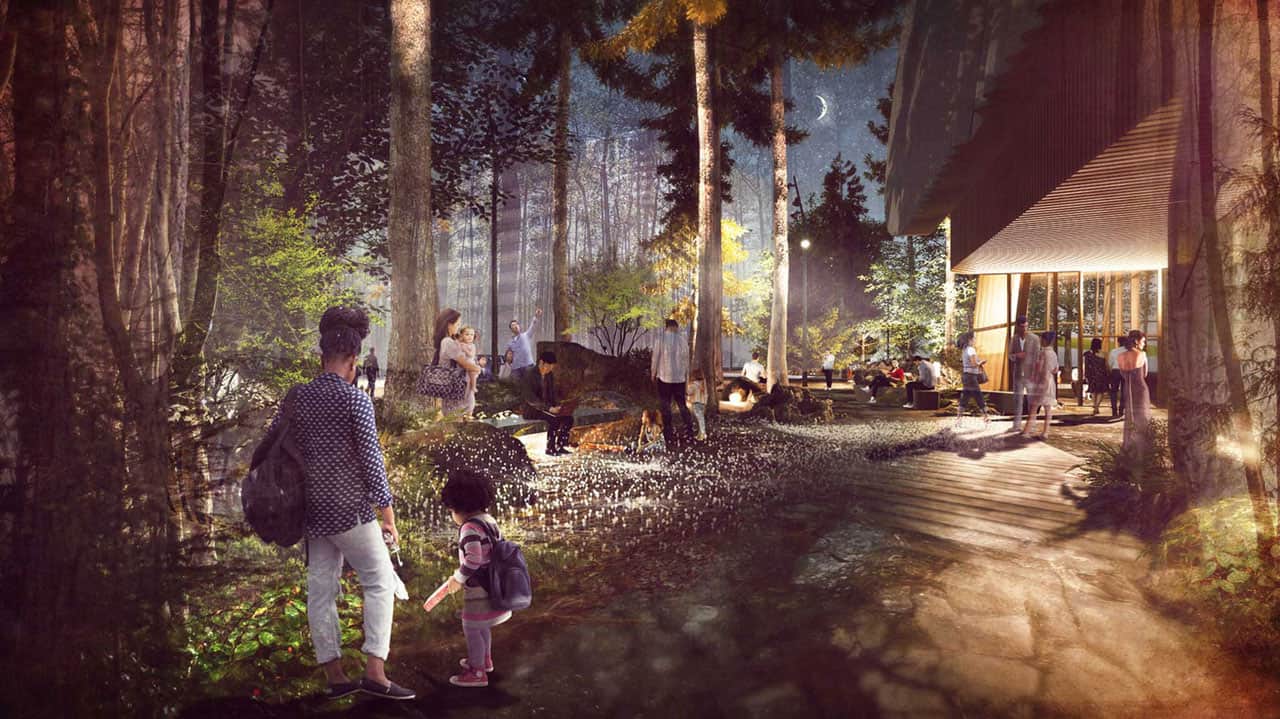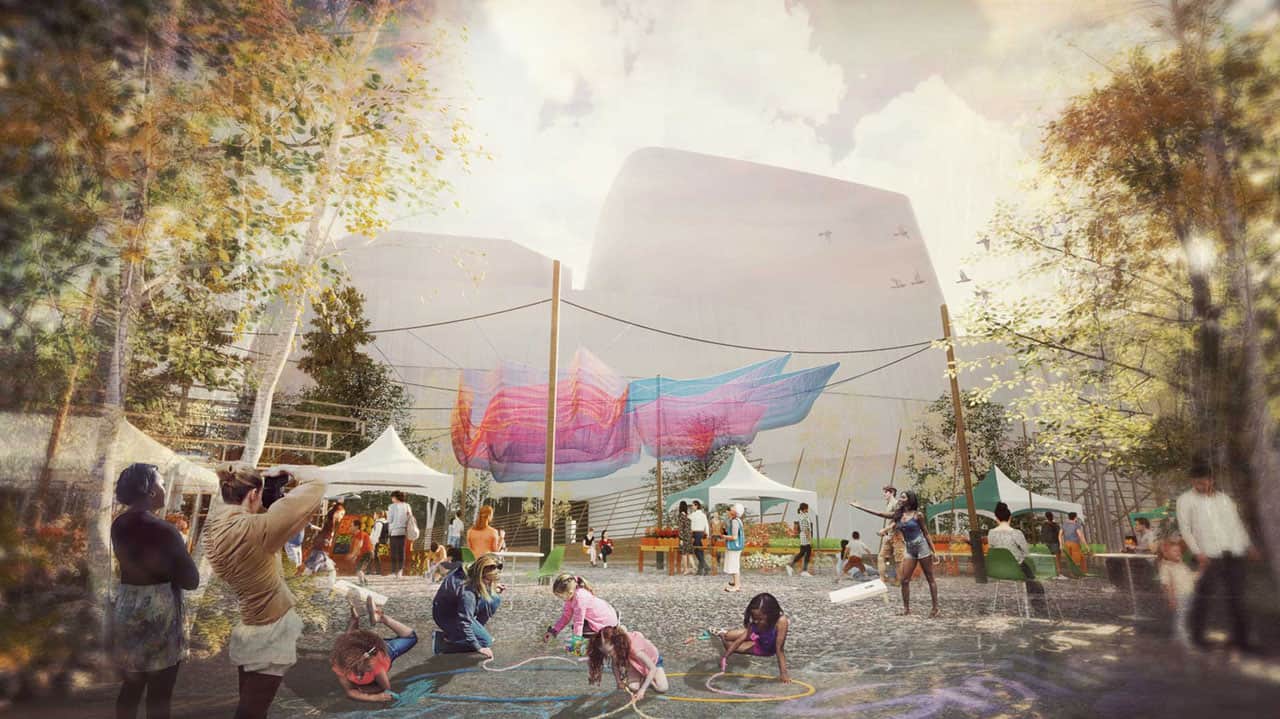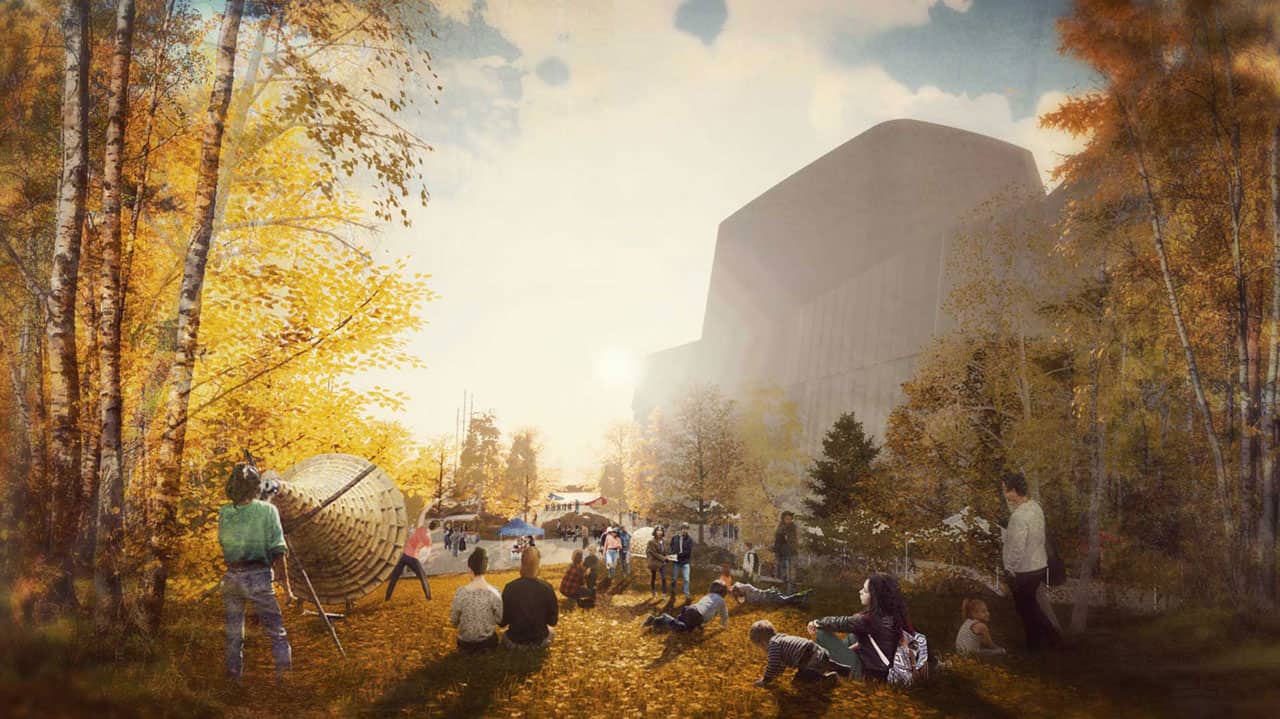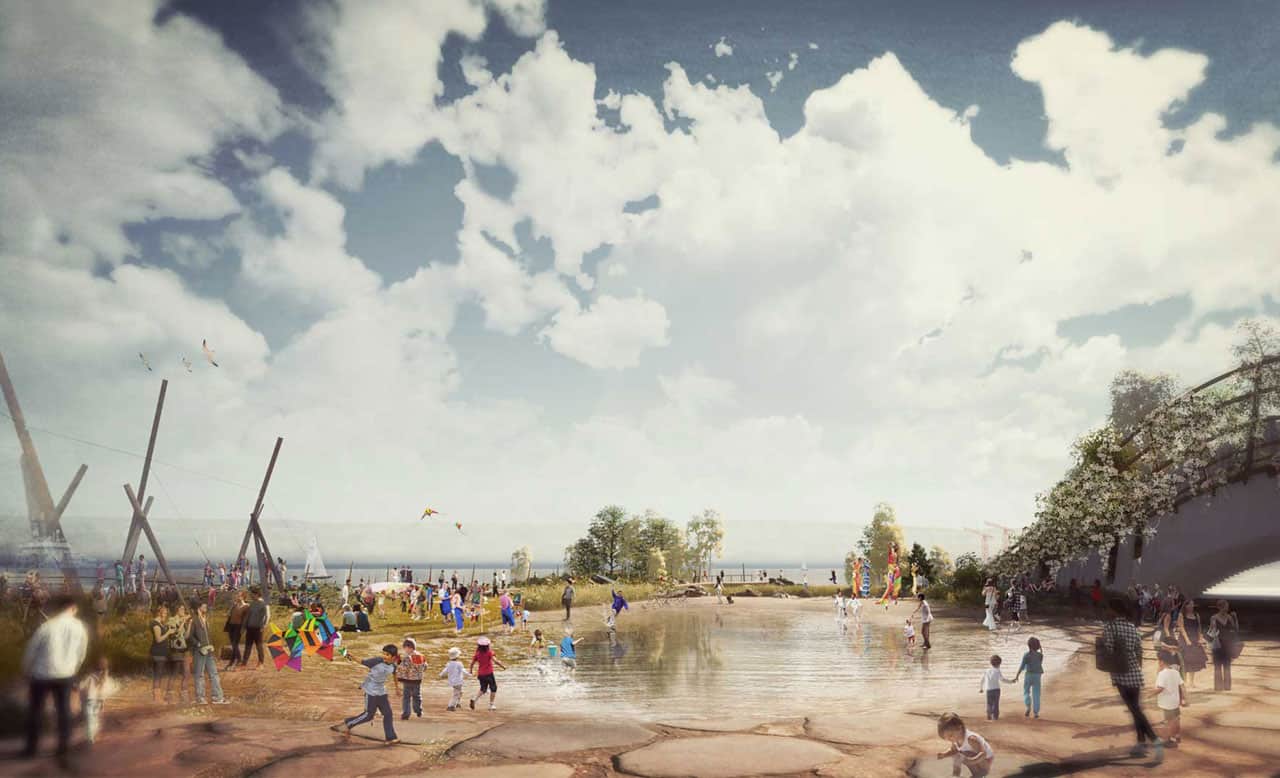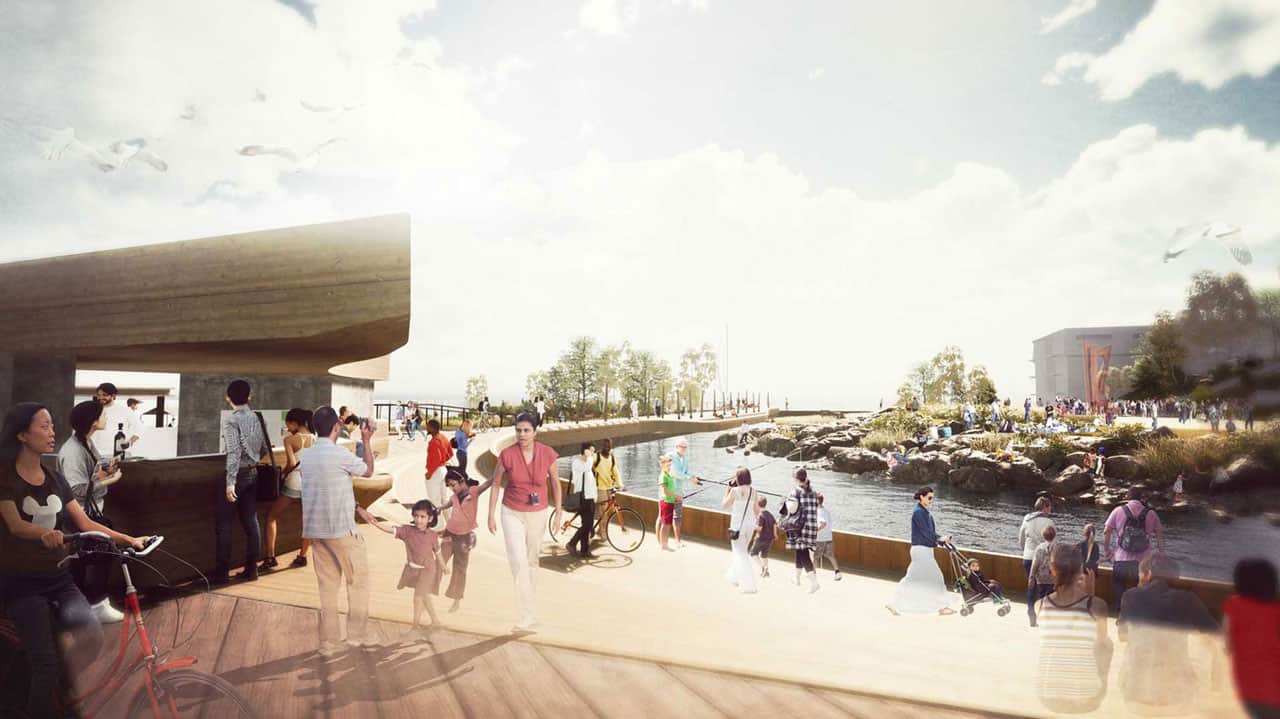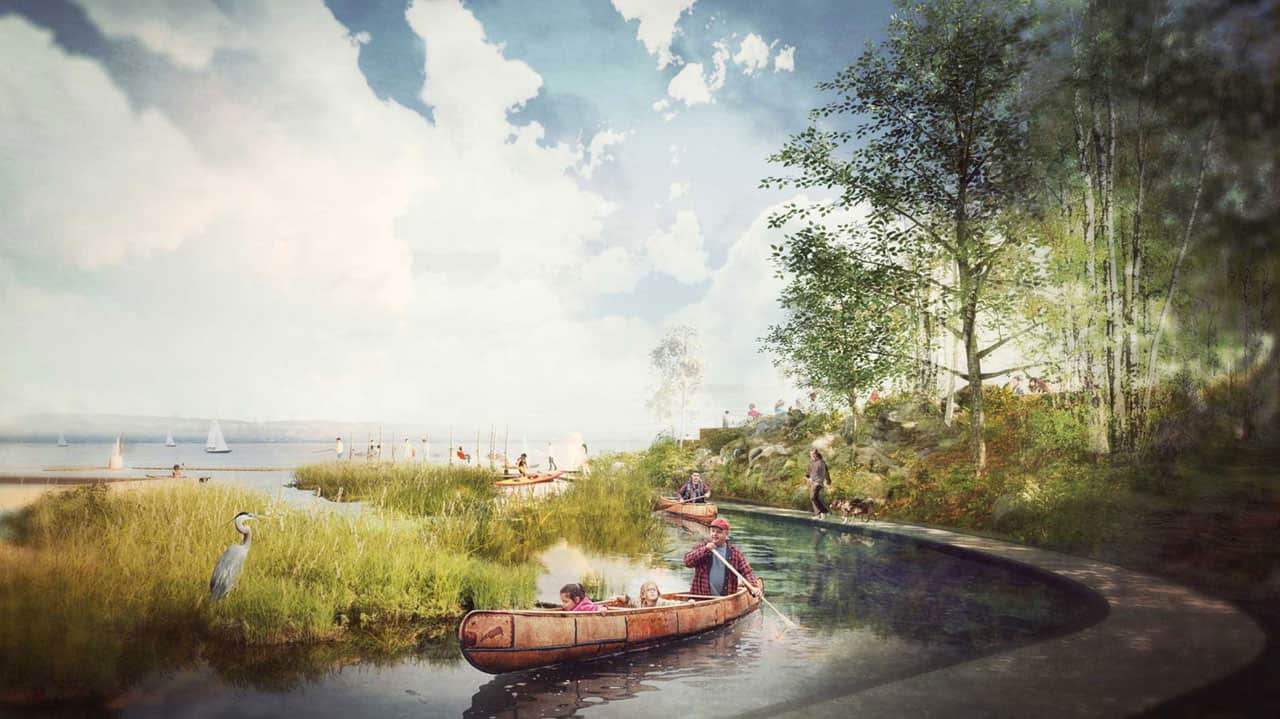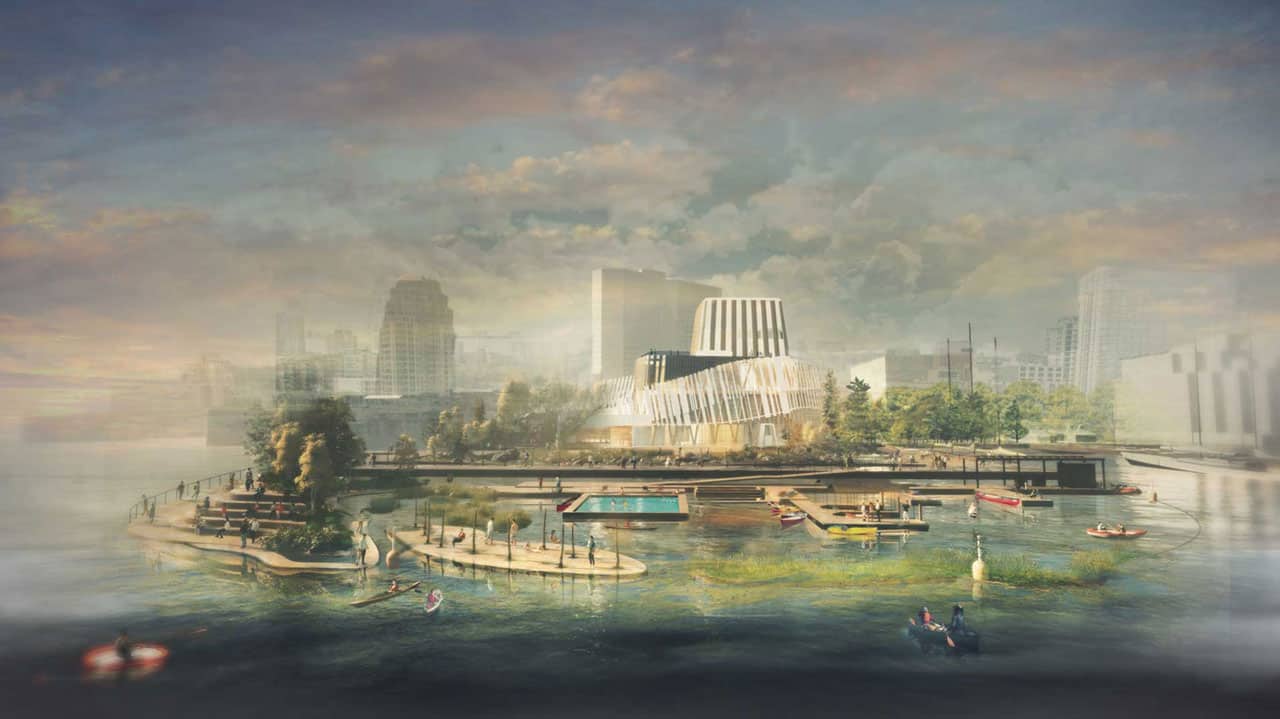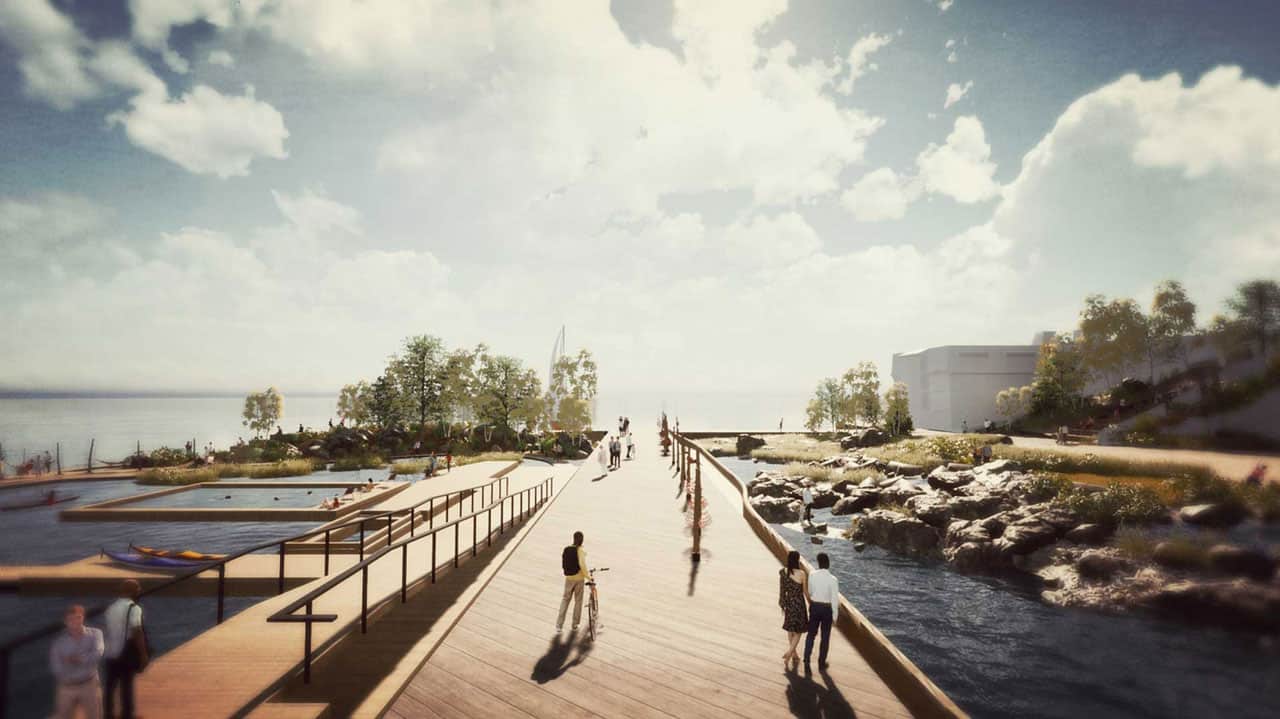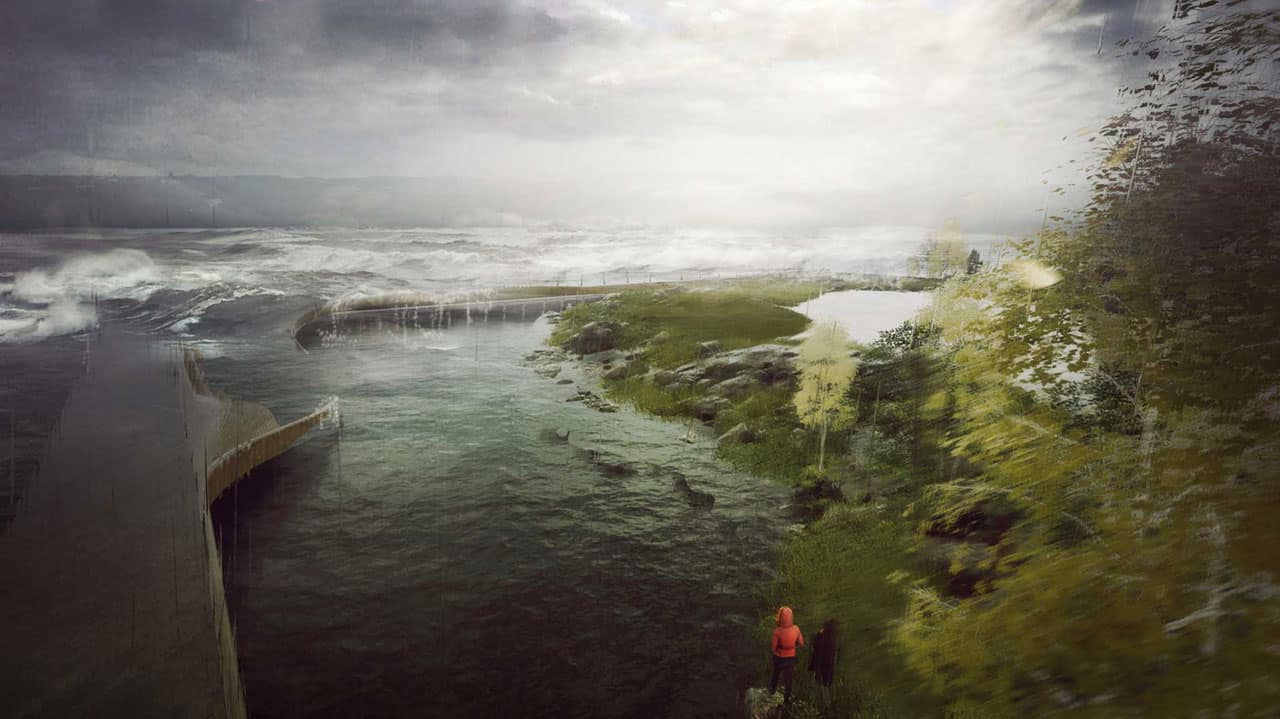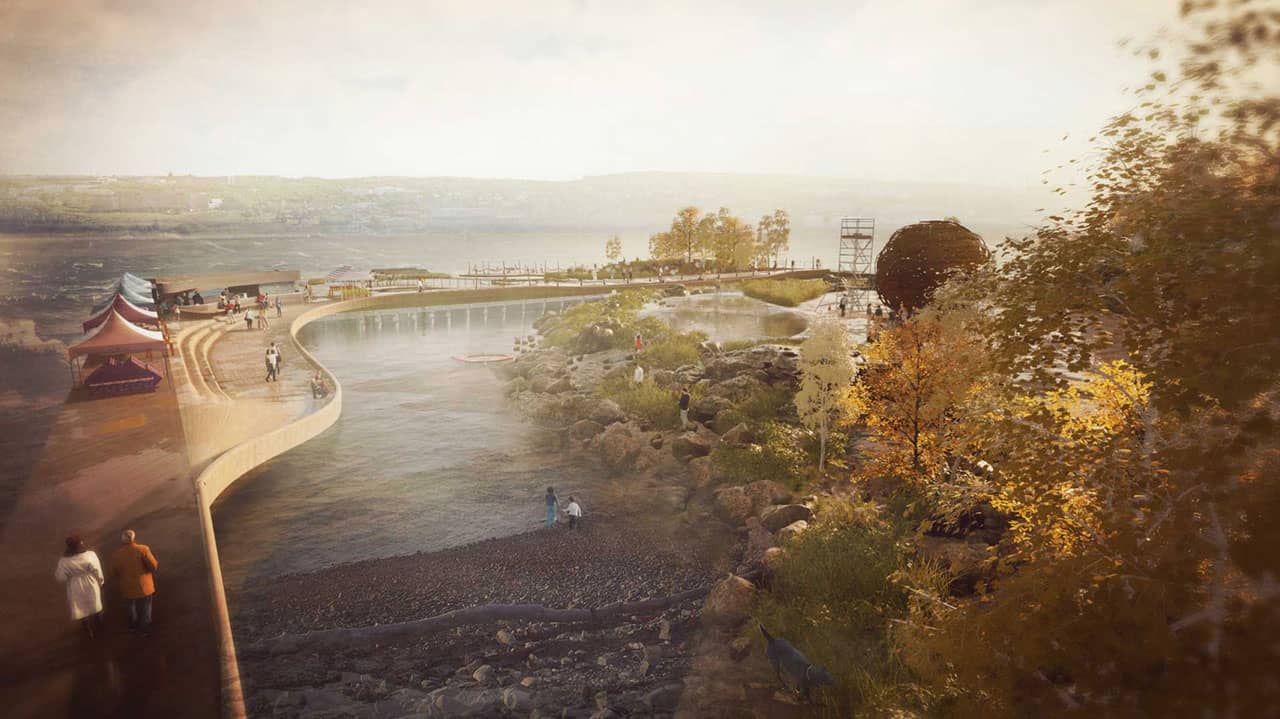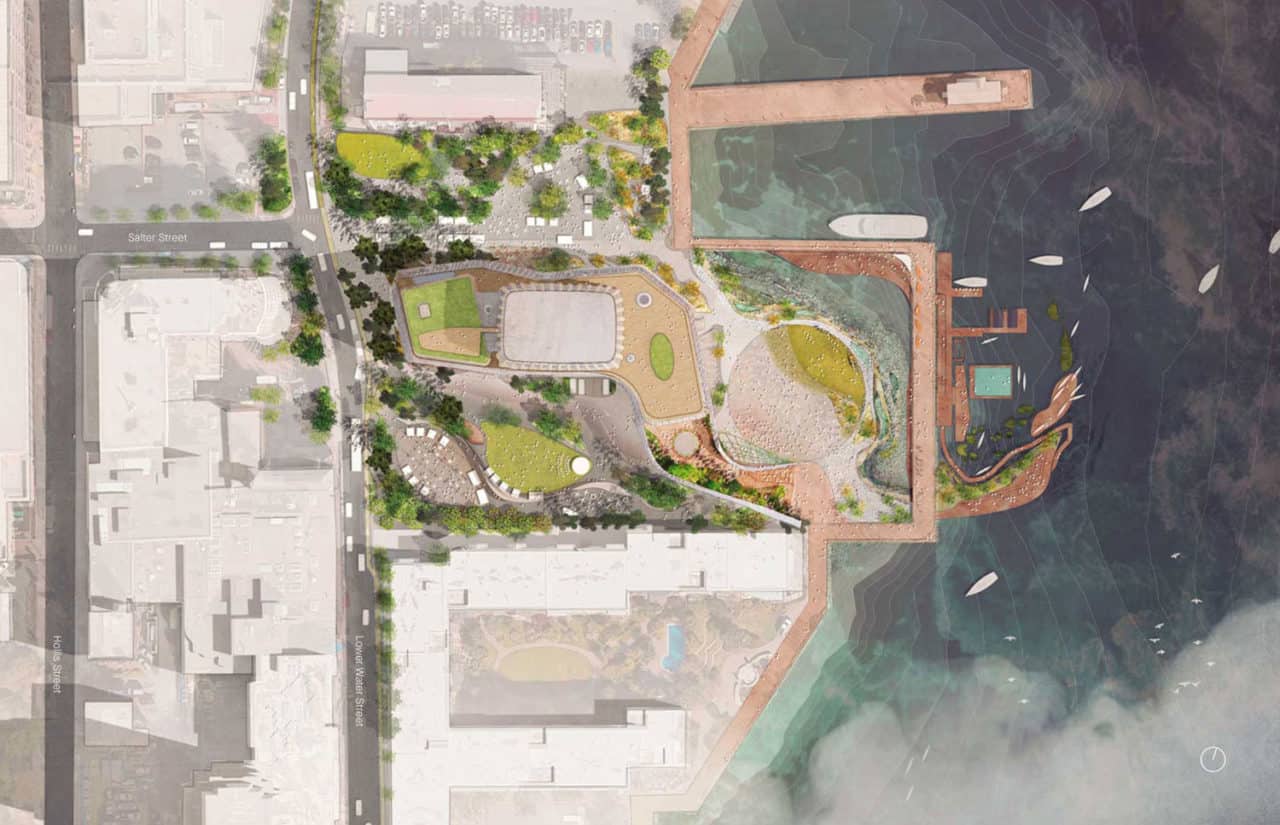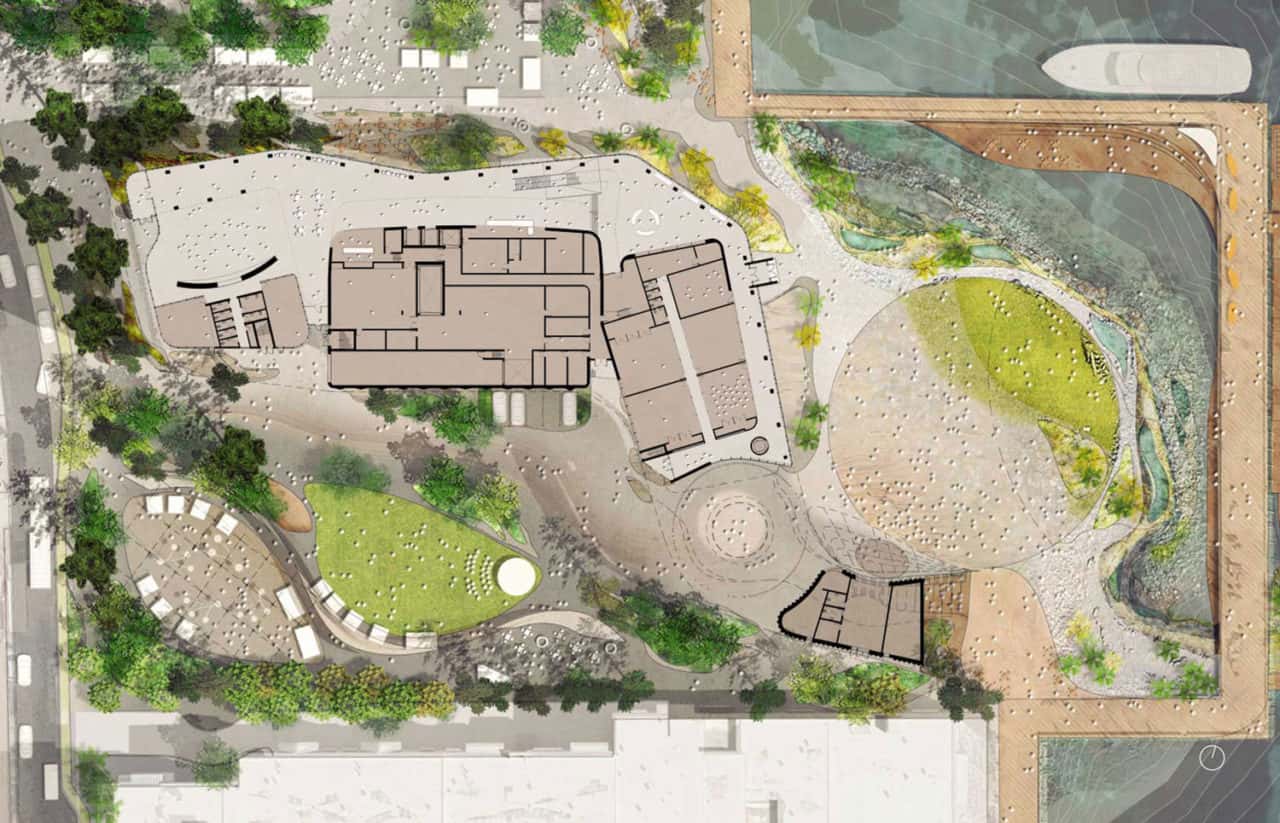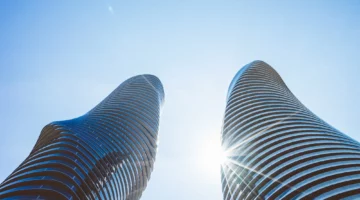KPMB Architects with Omar Gandhi Architect, Jordan Bennett Studio, Elder Lorraine Whitman (NWAC), Public Work and Transsolar have been selected as the winning team of the international design competition for the new Art Gallery of Nova Scotia and Waterfront Arts District.
The new Gallery and Arts District, located on the Salter Block of the Halifax Waterfront, will be a transformative arts destination for all to experience. It will inspire and celebrate creativity and imagination, but also challenge the status quo and reshape institutional values. It will be a place created with people, art, and culture at its core.
The work completed by the winning team embodies a vision of a place for all seasons, rooted in sustainability, connecting the city at the water. It’s a gathering space where art, learning and community unite.
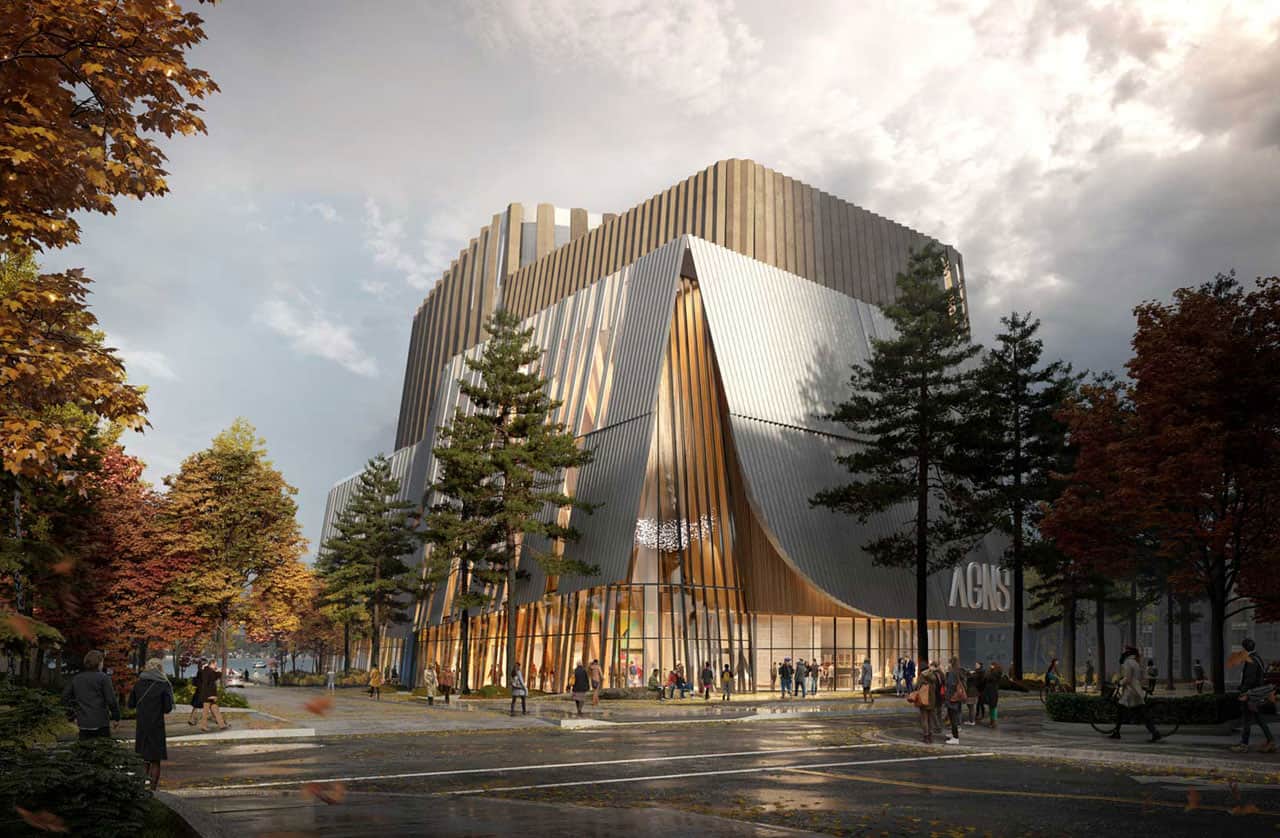
New Art Gallery of Nova Scotia
Netukulimk, the Mi’kmaq concept of sustainability which respects all living things is at the heart of the design of the new AGNS - in harmony with nature and the seasons, always comfortable in the maritime climate, made with local materials by Nova Scotians for Nova Scotians.
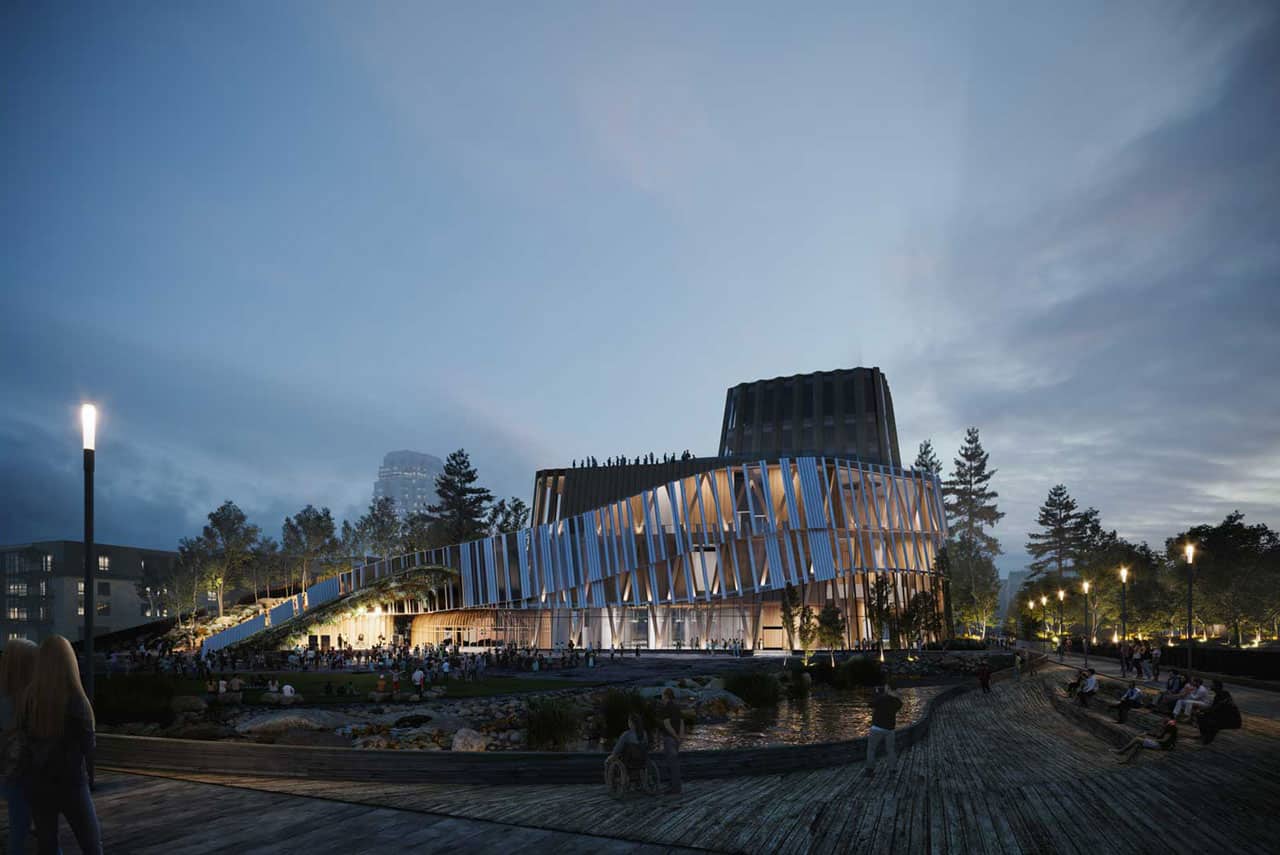
Passive Design First
As designers, they had the responsibility to provide design solutions able to be robust and resilient, especially in consideration of an uncertain future. The design is the result of a passive-design-first approach, which leads to a higher than usual resiliency and will allow the building to rely less on the local grid and to behave in a robust manner against unpredictable future extreme weather and environmental conditions.
Nature-based Approach to rising water levels
The ecologically integrated design challenges conventional flood-protection- thinking with a layered series of protective solutions that respond to both coastal and inland flood conditions. Each of these conditions have been addressed through a hybrid nature-based approach to resilience.
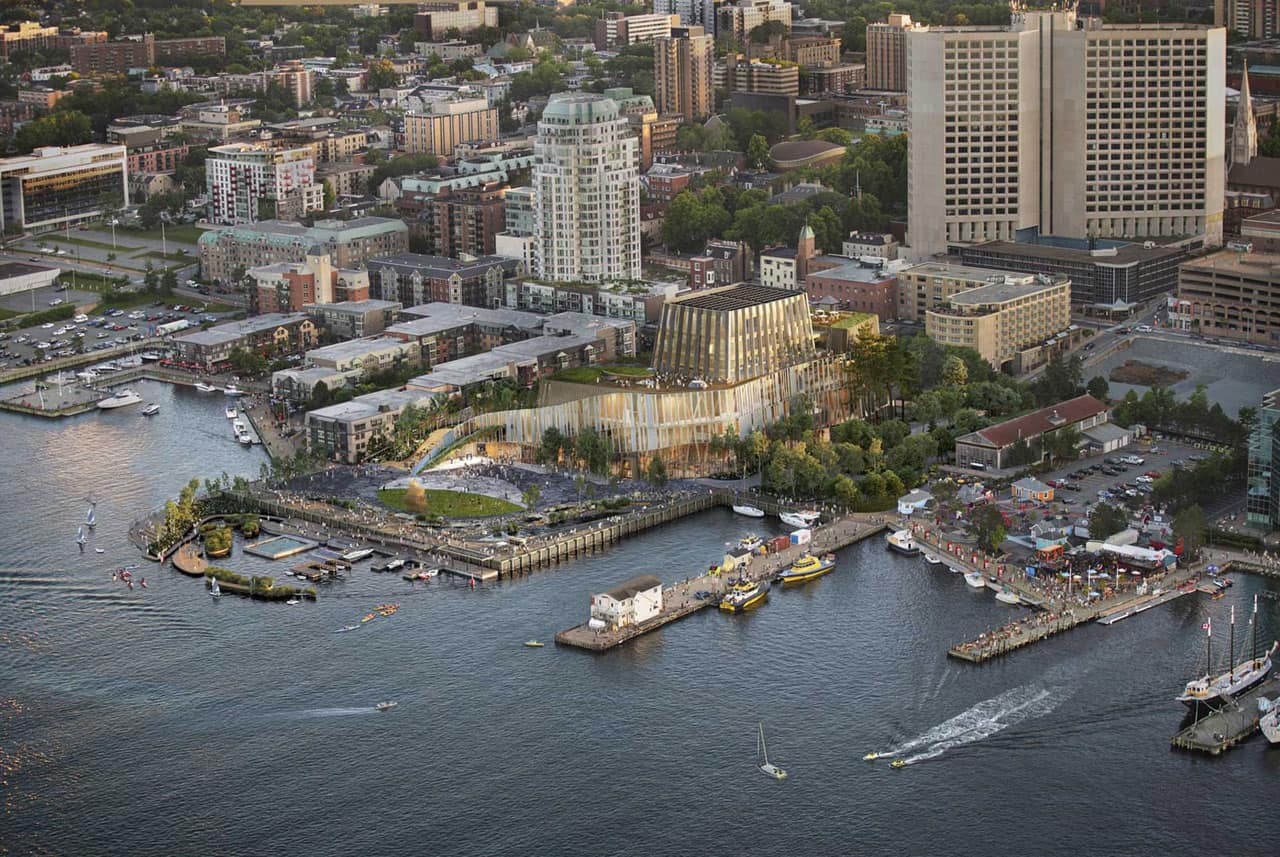
Net Zero before 2050
"Together with a passive-design-first approach, and by carefully choosing system and construction materials, the design is set to meet the AGNS expectations for net zero carbon emissions before 2050.
The building is designed today with a minimized energy use intensity (EUI) and will be fully electric in order to avoid any form of fossil combustion on-site and also to facilitate the transition to a future carbon-neutral operation, according to the planned de-carbonization of the local grid (NS Bill 213).
The unique design and performance of the AGNS will have a global impact as an exemplar and send a clear message: the building industry can achieve zero-carbon emissions before 2050, but only with out-of-the-ordinary designs and boldly engineered solutions. We do this by building on Indigenous knowledge and current science, to create a regenerative, enduring, inviting, and beautiful place of Nova Scotians and all people." - Tommaso Bitossi, Transsola
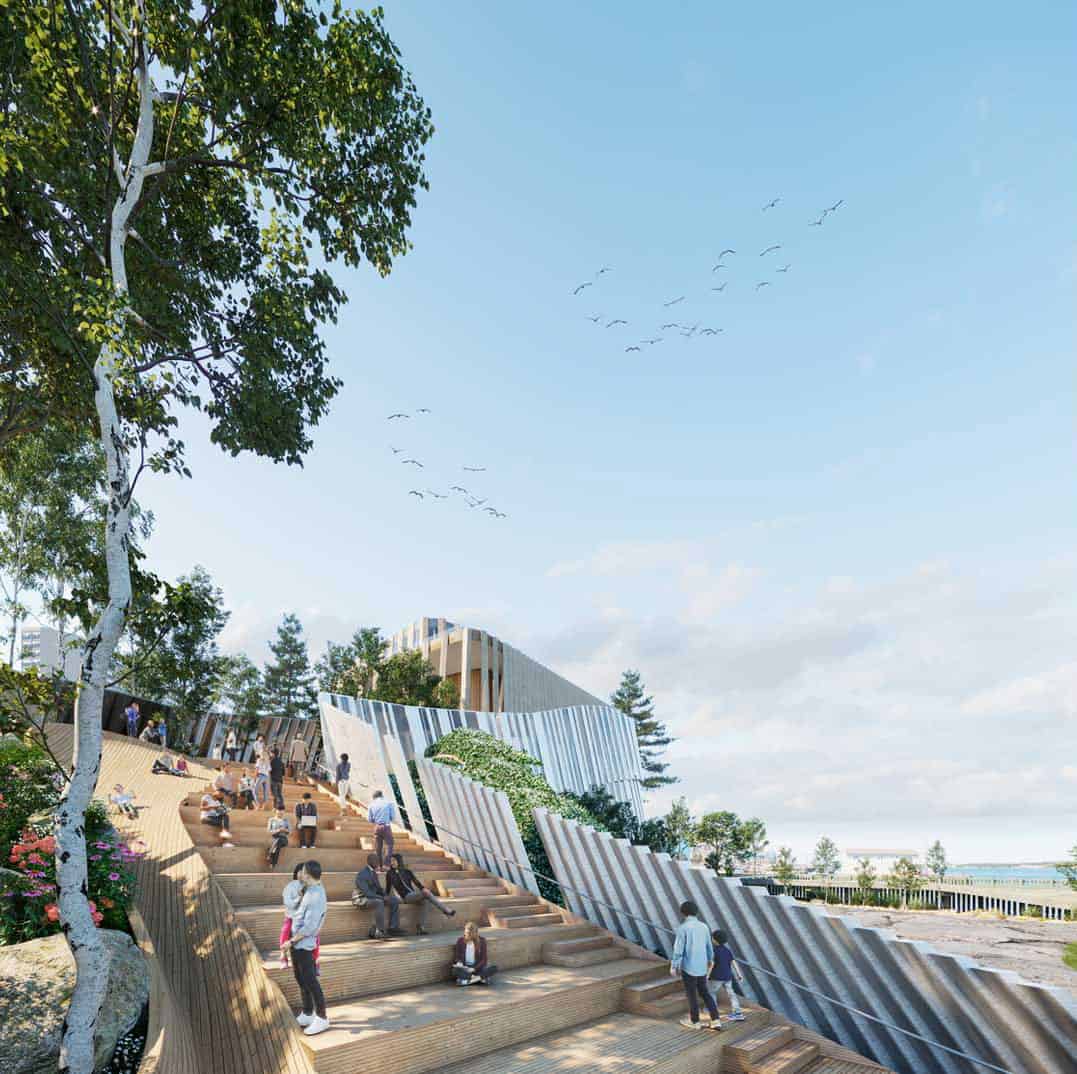
KAT(KATEW) & TAIL
The body of Kat (Katew), or eel, inspired the design, emerging from and returning to K’jipuktuk, the Great Harbour. The eel, a universal measure of the health of the environment, is also significant to the culture, knowledge, and sustainable practices of the Mi’kmaq. The sinuous form allows the building to flow across the site, outside of the colonial grid and connecting to the movement and rhythms of ocean waves. The sheen of its greyish-blue terracotta canted walls aid in regulating light, air and temperature within the AGNS.
Between the City and the Harbour
The new AGNS responds to the scale of its neighbouring buildings which include the Marriott Hotel, Bishop’s Landing, and the Alexander Keith’s Brewery by keeping the edges of the building low. The main entrance at Lower Water and Salter Street is inspired by the shape of the peaked hats worn by Mi’kmaw matriarchs.
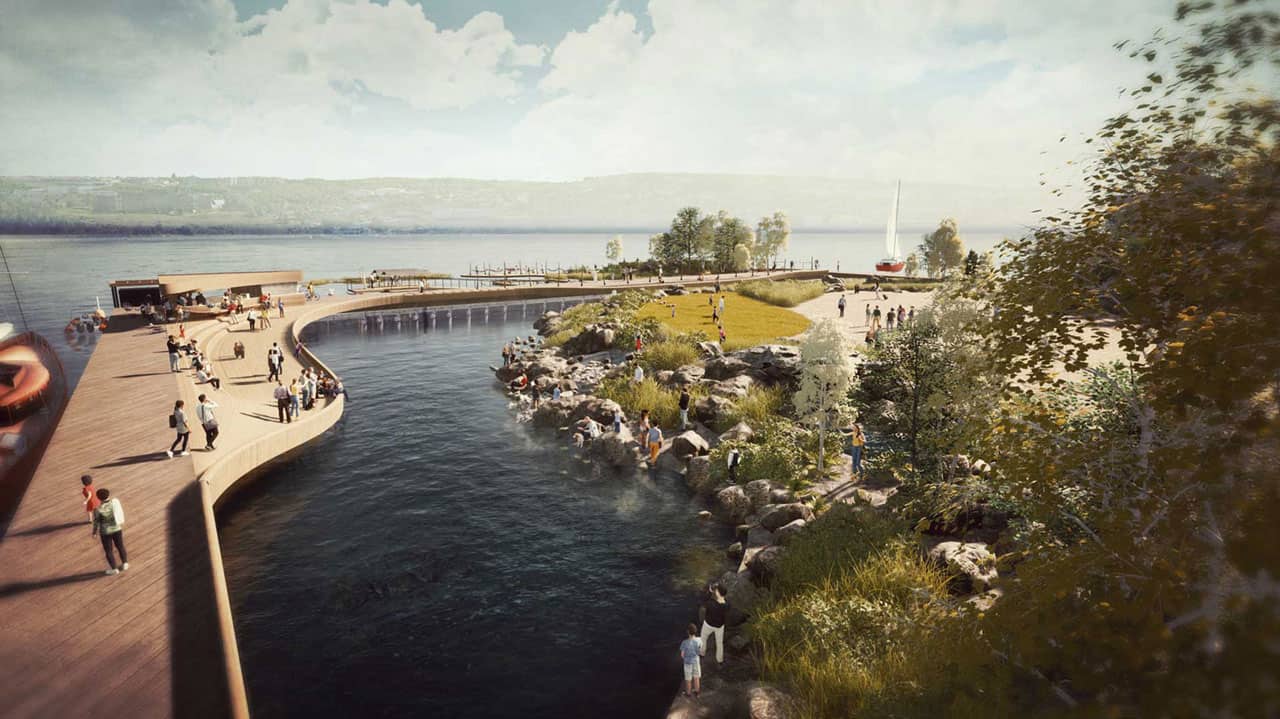
The Peaked Hat Entrance
The recognized shape of the Mi’kmaq women’s peaked hat inspired the shaping of the main entrance at Lower Water and Salter Street to create a welcoming, nurturing experience where everyone feels at home. The iconic shape is also a symbol of the strength, wisdom, love and power that women hold within Mi’kmaq communities.
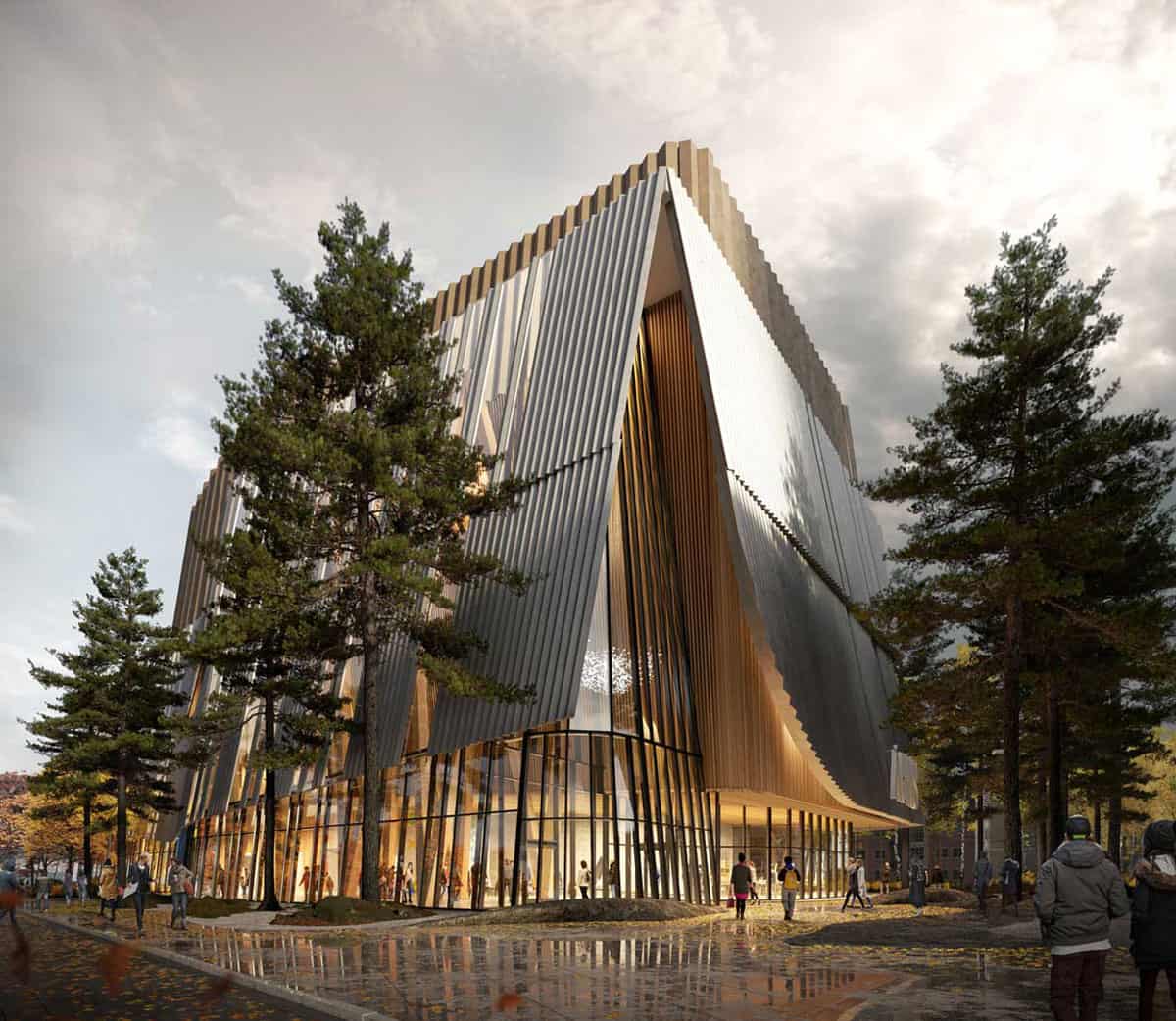
Mawiomi Odeum
When you enter through the Peaked Hat entrance from Lower Water and Salter Streets, you will arrive in the Mawiomi Odeum, a warm, open public gathering space where art, learning and community come together.
Mawiomi, the Mi’kmaq word for gathering, is at the heart of the design of the new Art Gallery of Nova Scotia. It embodies the design objectives for a welcoming visitor experience, ‘prioritizing and engaging people at every turn.’
It will feature a canted timber diagrid that frames the public space and flows from the main entrance to the Harbour.
"The design reflects feedback from the public, Mi’kmaq elders and leaders, and others in our community. And we look forward to many more conversations in order to create a place that promotes inclusivity, curiosity and discovery." - Heather Hanson, PR Hive
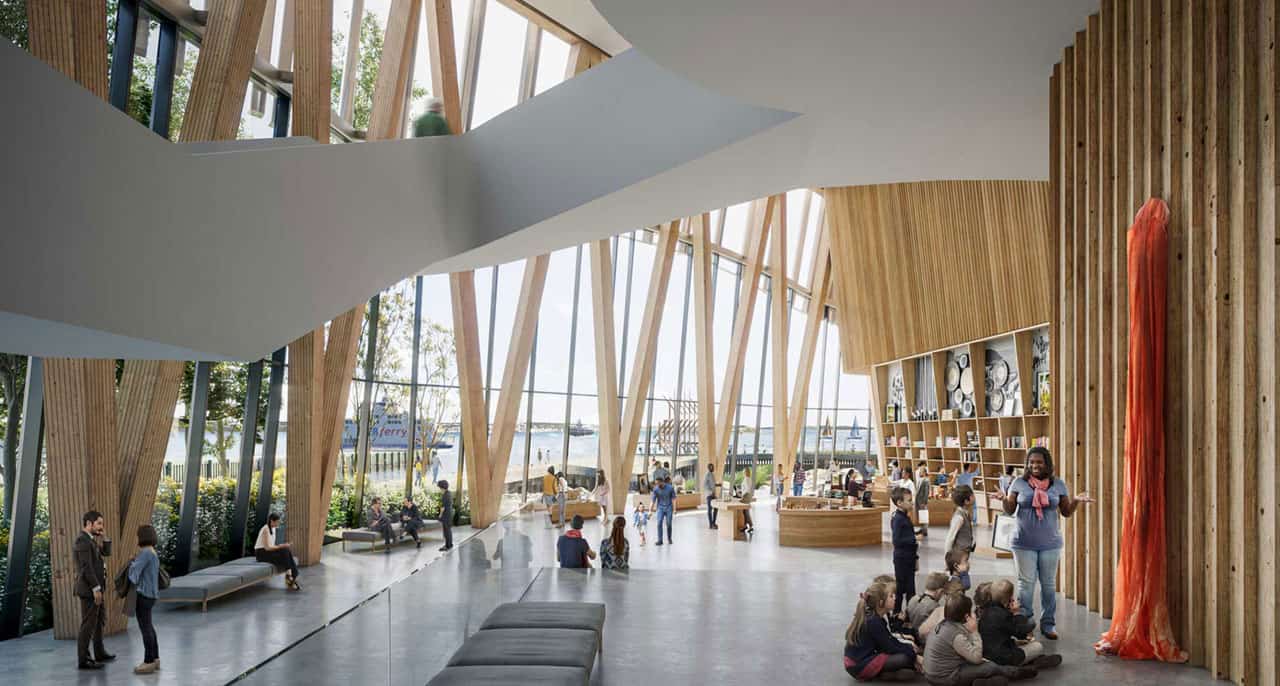
"We wanted to create a space that echoed our natural environment - no sharp edges. In accordance to our Elders’ wishes, there are no places for energy to be trapped in corners. We moved away from the idea of the square and the square building." - Jordan Bennett, Artist
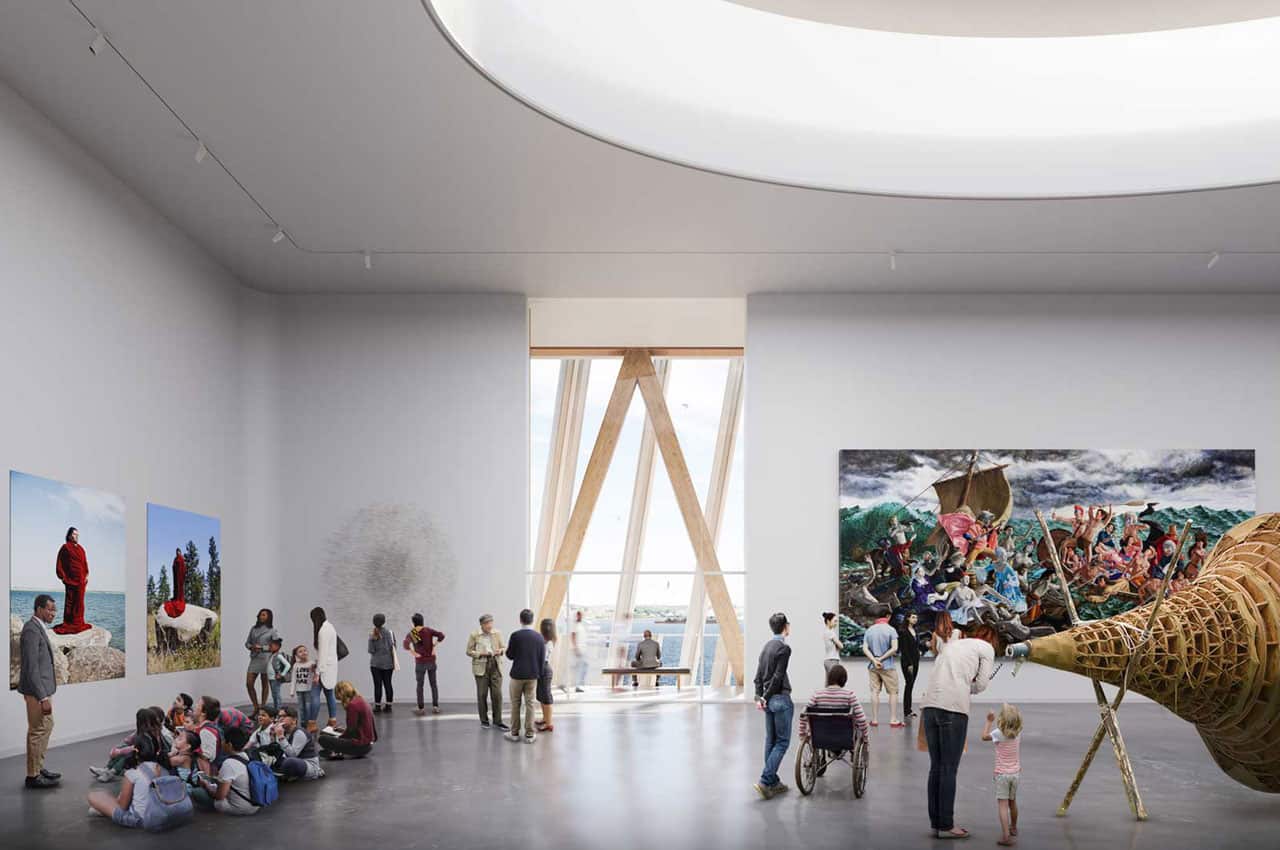
When people arrive at the fourth floor by either the elevators or the interconnecting stair in the west court, they will be greeted with a view into the beloved Maud Lewis House and Gallery.
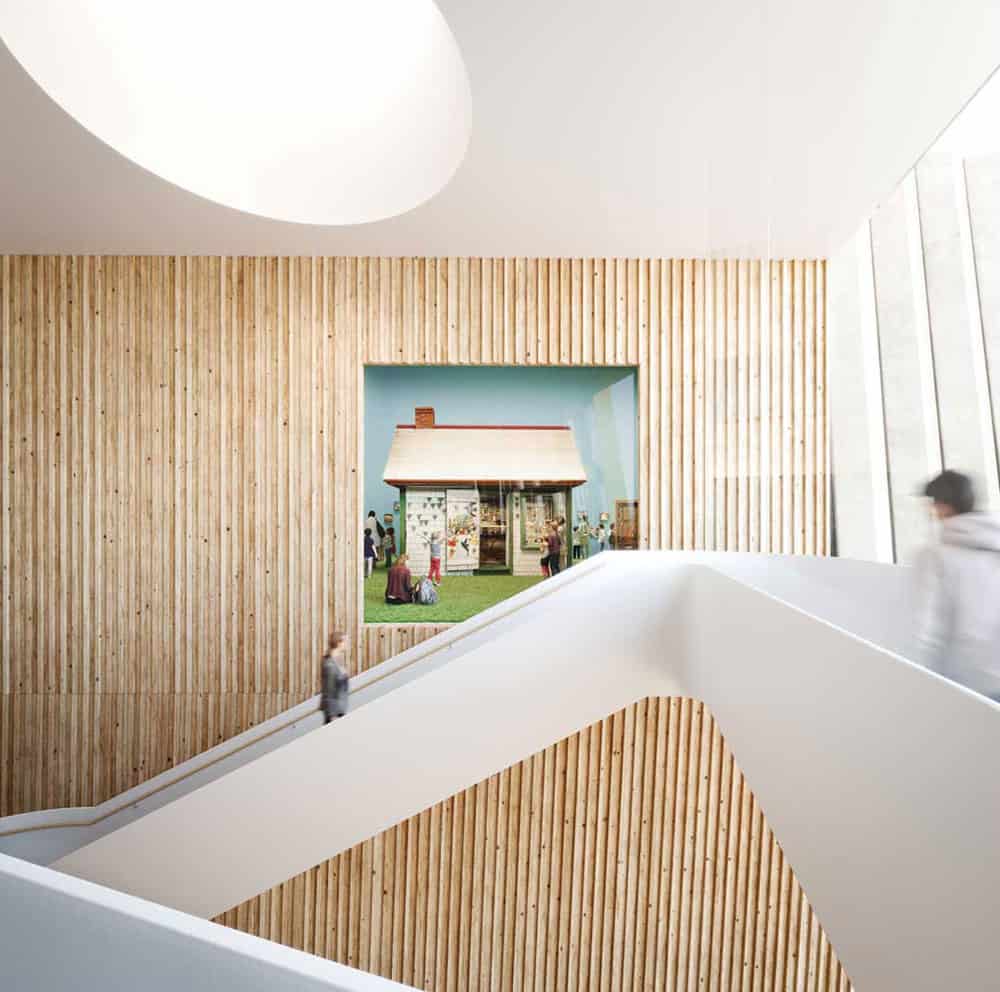
The materials - timber, terracotta, metals all reinforce the objectives of the AGNS to create something unique, and achieve a sustainable design with significant reductions in embodied carbon. The vertical rhythm of the façade composition makes references to vertical patterns of Mi’kmaq baskets woven from quills, pine needles, and strips of ash. The idea is to invite local suppliers and trades to participate in the making of the architecture and landscape.
On Lower Water Street, the open space reserved for a future building will be activated as a landscaped public space for outdoor events, art-making, and gathering through all seasons.
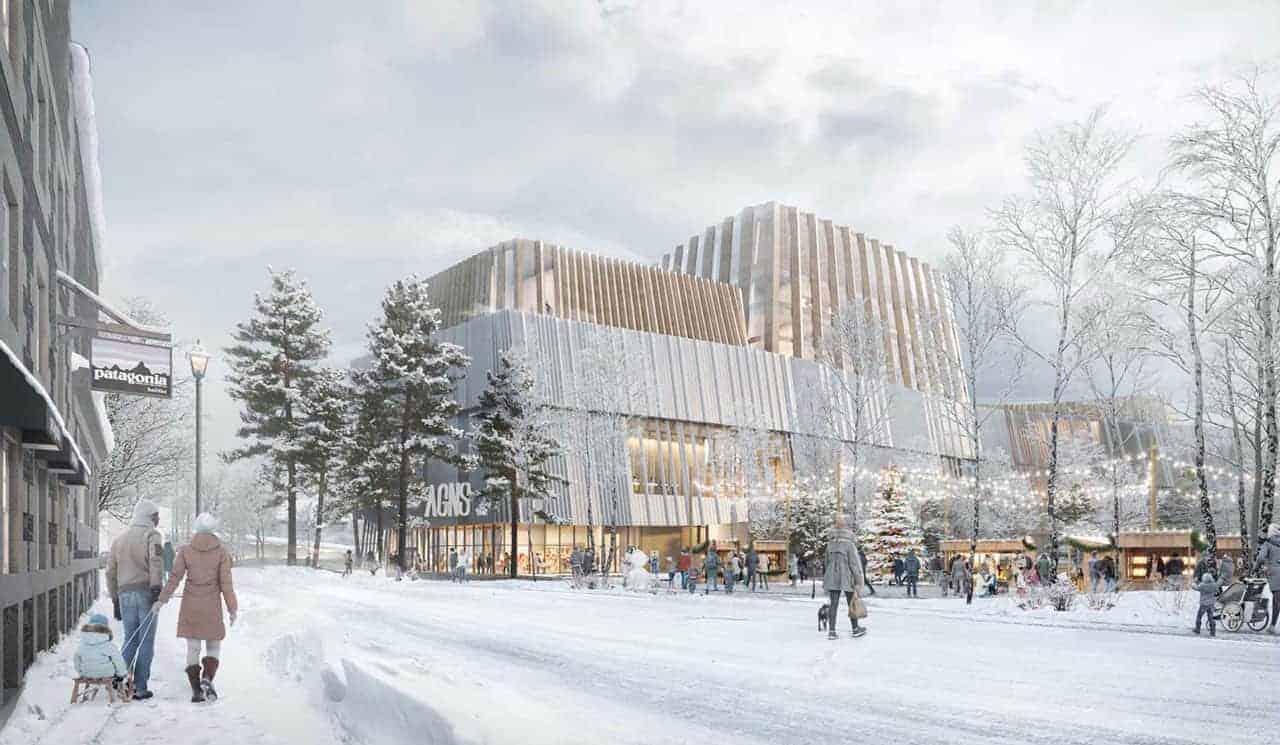
The Oculus is an open-air, circular gathering place located between the Tail and the AGNS gallery building. It provides a pedestrian connection from Lower Water Street to the Harbour and will be used for formal and informal gatherings.
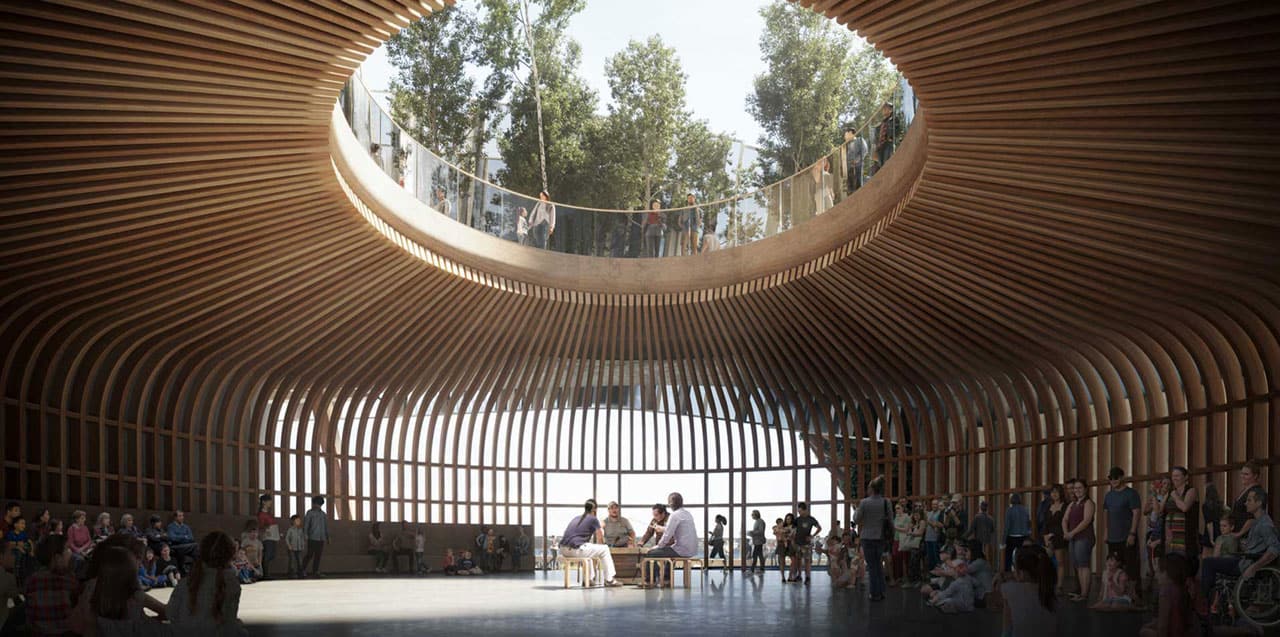
"This space is a presence - not in the traditional sense of imposing or aggressive, but rather it demonstrates the power of culture, unity, and positivity in the most respectful and creative way possible. This scheme demonstrates the marriage between internal, external, land and water. Quite simply, it’s breathtaking." - Lorraine Whitman Elder and President, NWAC
